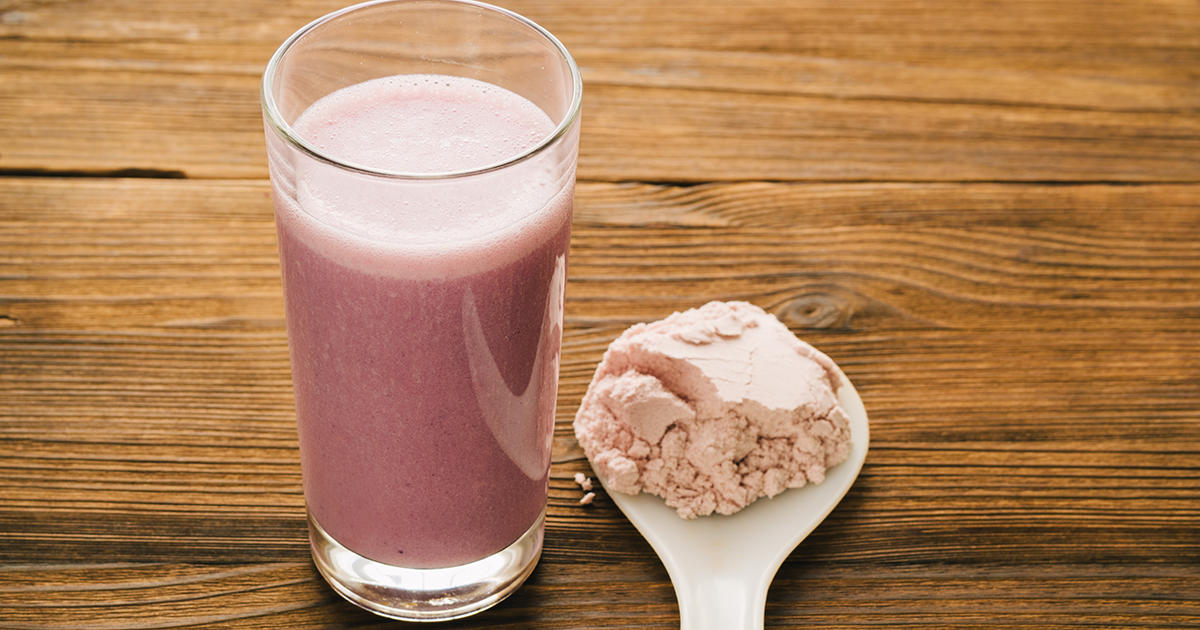Written by Callen Goldsmith (science graduate and avid runner).
It feels obvious that knocking back a protein shake after a training session will make you, in the words of Daft Punk: “harder, better, faster, stronger”. I mean, everyone seems to be doing it must work, right? I’ve had a fair bit of time on my hands recently, so rather than die wondering, I thought I’d find out.
I sought to discover:
- If protein actually does anything to aid recovery or performance?
- If so, when is the best time to take it?
- How much should I be having?
- And does it matter which type?
Its been well documented that intake of essential amino acids – building blocks of protein that our bodies can’t make – stimulates protein synthesis. Stimulating protein synthesis pathways are recognised as improving muscle size and strength. This has been well realised following resistance training to help with maximal gainz.
Can we apply these findings to middle/long-distance runners? Typically, the best 5000m runners aren’t the big muscley guys. So what effect does protein have on runners, and will it improve performance? Do we even use the extra protein, or does it just turn into expensive piss?

So, Do Protein Supplements Improve Performance?
The bottom line here is, will having protein make me faster? You can have all the changes to cellular chemistry you like, but if it doesn’t translate to running faster, then who cares?
The recommended dietary intake of protein for athletes is 1.2-2g/kg/day, so if you’re about 60kg that’s 72-120g of protein daily. This is higher than the general population at 0.8g/kg/day, which is essentially the bare minimum to prevent you from wasting away.
Where you should sit on this scale is dependant on several factors like what part of your training cycle you are in, among others. Specific recommendations are beyond the scope of this article and should be discussed with a dietitian.
It has also been shown that about 25g of high-quality protein is sufficient to maximally stimulate protein synthesis pathways in your muscles. So don’t just sesh your daily requirement at breakfast or something. Most of that protein will just be wasted.
We know that high-quality protein ingestion increases lean muscle mass and improves strength in resistance-trained athletes. This principle has been applied to endurance athletes with similar effects. Typically there is a decrease in fat mass, increased muscle mass, and strength with bodyweight maintained.
This is all good and expected. Interestingly, increased protein intake may improve a muscles oxidative capacity. Meaning you can work aerobically at higher intensities, which is more efficient. This was a result of increased mitochondrial enzymes that are involved in the aerobic respiration pathway.
Increased protein intake has also been shown to attenuate markers of muscle damage following training or race simulations. A great result, now you can recover better and be ready to go for the run the next day.
All these elements should promote improved performance. Yet, the evidence is conflicting with some studies reporting improved time trial times and others not. My opinion is that it probably is beneficial to race performance. This is because most of these studies are only a week or two in length, following an intense training program, which is not typically concurrent to great race results. Either way, the data doesn’t usually report decreased performance. It may be that the control group performs about on par with the protein intervention group. In the other studies, the control group gets romped. Also, the studies that show improved results are usually among elite athletes, while the inconclusive ones use more amateur participants.
Having the protein means you’ll recover better, feel better and be stronger. Because of this, you’ll be able to back up sessions better, be injured less and be able to build season after season. As we all know, training well consistently and not getting injured leads to better race results.

When Should I Take It?
After training, protein synthesis is upregulated for at least 24 hours. The general knowledge is that you have it straight after the session, which is replicated in most studies. You can have your protein up to 2 hours after the training, and it will pretty much have the same effects as having it straight away. It’s probably more convenient to get into the shaker straight after a session helps you remember to have it. But if you forget, having it once you get home will be fine.
Some studies suggested having protein before the session, but this wasn’t as effective as taking it after. Or they used a combined approach of having protein before and after… overkill. You get the same benefits of having it after the session as you do when it is before and after.
Interestingly though, there is a specific type of protein called α-lactalbumin that has a high
tryptophan content. Tryptophan is the precursor to serotonin, a neurotransmitter with which I’m sure some are more familiar than others. Essentially, serotonin makes you feel good.
Intake of α-lactalbumin before a time trial or race has been linked to lower perceived exertion and an increased pain threshold. Other supplements like caffeine have similar effects, so more research is needed to understand fully whether this actually makes a difference in a race.

Different Types of Proteins
There are a bunch of different types of protein on offer. You want something that’s high quality, but what does that even mean? Essentially you want it to just have protein in it, no sneaky special extras.
As far as supplements go, there is effectively no difference between the quality of the protein from its derived source. Meaning, plant-derived proteins are not really worse than animal-derived ones. However, the gold standard for protein is whey – a by-product of cheese manufacturing.
Whey is the ducks’ guts because it contains a high leucine content. Leucine is an essential amino acid, but like, it’s the real pure stuff. Pure powdered gold. Leucine can independently stimulate protein synthesis pathways and is really easily absorbed, so it acts faster and better than other types of protein. Other protein sources such as fermented plant protein will work just fine if you have dietary requirements preventing you from consuming animal products. Just check out the leucine content on the label and go for the higher one.
Carbohydrates too?
I think it’s common knowledge that you need to get some high GI carbs in after a run, and the common knowledge on this is accurate. You’ve gotta replace the glycogen you just burned through on the run.
The carbs need to be consumed within thirty minutes after exercise. Because there are more glucose transporters available on the muscle at that time. This all makes sense. What sounds less plausible is that glucose can also increase protein synthesis.
We are all familiar with insulin, it’s released from the pancreas when we eat carbohydrates. Well, insulin promotes protein synthesis too.
When it binds to its muscle cell receptor, the insulin receptor (IR), this triggers a protein synthesis pathway. It’s the same pathway that is stimulated by leucine and other amino acids.
So beyond replenishing glycogen stores, carbohydrates can also aid in recovery by promoting muscle protein synthesis. How good? This is not to say that carbohydrate alone is sufficient to optimally activate muscle protein synthesis pathways. It isn’t, but it provides an added boost
that’s always beneficial.
What Other Effects Does The Extra Protein Have On Your Body?
Luckily, excessive protein intake is yet to be associated with any adverse health issues. However, some studies report that increased protein intake can adversely alter your gut microbiota. This doesn’t sound overly important, but the gut microbiome has massive importance to our overall health. They can affect our mood and are involved in digestion, among other processes.
Luckily, these effects appear to be reversed when athletes consume adequate dietary fibre. When adhering, participants actually displayed higher microbiome diversity. Highlighting the
importance of a properly balanced diet. To understand what that might mean for you the nutritional guidelines for athletes is a good starting place. Further steps might involve discussions with a sports dietitian.

Advertisement: Purchase a running classic now at the Runner’s Tribe Shop
Summary
The takeaway elements about protein for middle/long-distance runners are as follows.
- Have the protein after the run.
- 25g is enough to maximally stimulate protein synthesis pathways more than that is just going to be filtered out.
- Whey is the whey to go, but if you’re just better than most people like Todd Ingram, fermented plant protein isolate is fine.
- A protein isolate with high GI carbohydrates following training is probably the way to go to maximise recovery.
- Protein can be consumed up to two hours after the cessation of the exercise and still have the same effects. Carbohydrates need to be consumed within thirty minutes for optimal results.
Now you have the tools in your arsenal to tackle those tough training weeks and really launch into your next race.
Recommended Further Reading
- Clarke, S., Murphy, E., O’Sullivan, O., Lucey, A., Humphreys, M., & Hogan, A. et al. (2014). Exercise and associated dietary extremes impact on gut microbial diversity. Gut, 63(12), 1913-1920. doi: 10.1136/gutjnl-2013-306541
- Hansen, M., Bangsbo, J., Jensen, J., Bibby, B. M., & Madsen, K. (2015). Effect of whey protein hydrolysate on performance and recovery of top-class orienteering runners. International journal of sport nutrition and exercise metabolism, 25(2), 97–109. https://doi.org/10.1123/ijsnem.2014-0083
- Hansen, M., Oxfeldt, M., Larsen, A. E., Thomsen, L. S., Rokkedal-Lausch, T., Christensen, B., Rittig, N., De Paoli, F. V., Bangsbo, J., Ørtenblad, N., & Madsen, K. (2020). Supplement with whey protein hydrolysate in contrast to carbohydrate supports mitochondrial adaptations in trained runners. Journal of the International Society of Sports Nutrition, 17(1), 46. https://doi.org/10.1186/s12970-020-00376-3
- Huang, W. C., Chang, Y. C., Chen, Y. M., Hsu, Y. J., Huang, C. C., Kan, N. W., & Chen,
- S. (2017). Whey Protein Improves Marathon-Induced Injury and Exercise Performance in Elite Track Runners. International journal of medical sciences, 14(7), 648–654. https://doi.org/10.7150/ijms.19584
- Jeukendrup, A. (2011). Nutrition for endurance sports: Marathon, triathlon, and road cycling. Journal Of Sports Sciences, 29(sup1), S91-S99. doi: 10.1080/02640414.2011.610348
- Position of the American Dietetic Association, Dietitians of Canada, and the American College of Sports Medicine: Nutrition and Athletic Performance. (2009). Journal Of The American Dietetic Association, 109(3), 509-527. doi: 10.1016/j.jada.2009.01.005
- Qin, L., Sun, F. H., Huang, Y., Sheridan, S., Sit, C. H., & Wong, S. H. (2019). Effect of pre-exercise ingestion of α-lactalbumin on subsequent endurance exercise performance and mood states. The British journal of nutrition, 121(1), 22–29. https://doi.org/10.1017/S000711451800274X
- Stellingwerff, T., Maughan, R., & Burke, L. (2011). Nutrition for power sports: Middle- distance running, track cycling, rowing, canoeing/kayaking, and swimming. Journal Of Sports Sciences, 29(sup1), S79-S89. doi: 10.1080/02640414.2011.589469
- Vitale, K., & Getzin, A. (2019). Nutrition and Supplement Update for the Endurance Athlete: Review and Recommendations. Nutrients, 11(6), 1289. https://doi.org/10.3390/nu11061289





























